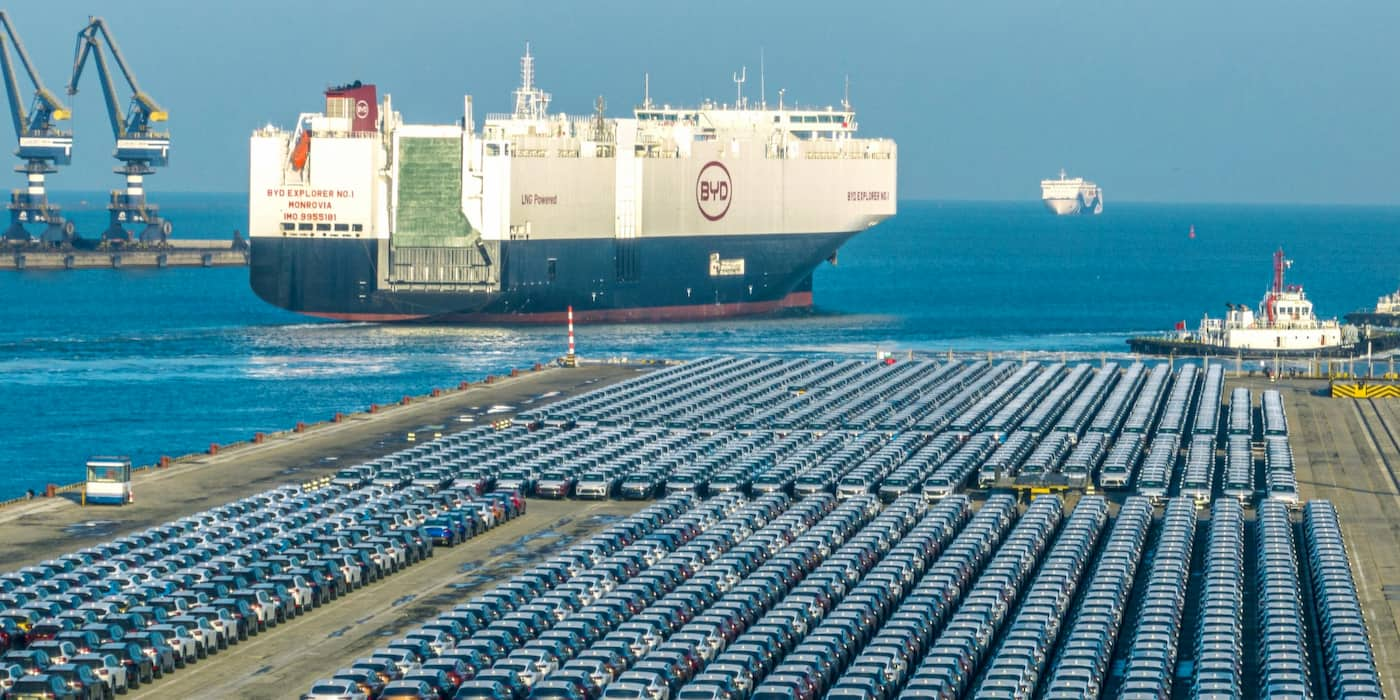Europe may slap retroactive tariffs on Chinese EVs


After months of investigation, the European Commission says it has found evidence that China has been “unfairly” subsidizing the EVs it exports to Europe. Possible “remedies” on the table include retroactive tariffs on Chinese EVs.
The European Commission says China hasn’t been playing fair in that its government has been paying subsidies through “direct transfer of funds,” among other actions, reports Reuters – which the EC says tips the balance in China’s favor and leaves European automakers out to dry.
Back in October 2023, Europe launched its formal investigation into the Chinese EV industry, as European companies are struggling to compete with the cheap, high-tech Chinese imports, made by low-cost labor, entering the European Union.
The European Commission visited BYD, Geely, and SAIC to gather intel, as part of its probe into what it says are both subsidies and bank lending campaigns from Beijing that fueled the outsize growth in China, with fears that China is building EV plants far beyond levels needed for domestic demand.
Meanwhile, the US and Europe have been tightening their rules on Chinese cars and EV parts being sold in their countries, with tariffs so high in the US that China has turned its focus on other areas, namely South America, Asia, and Europe. But now Europe may enforce its own tariffs. While the probe will continue through November, the EU could impose provisional duties as early as July, the report said.
The commission also said that it would require customs registrations of Chinese EV imports starting Thursday, “meaning they could be hit by retroactive tariffs from that point if the EU’s trade investigation later concludes that they are receiving unfair subsidies,” reports Reuters. As Chinese EVs are arriving into the EU by the shipload, the commission says it doesn’t have an idea of what the tally of retroactive tariffs might be, if it happens.
No surprise, but China isn’t happy, with the EU’s China Chamber of Commerce telling Reuters it is “disappointed” by the action and that the “surge of imports” only reflects consumer EV demand.
The commission published a document yesterday saying that it had sufficient evidence to make the move, adding that Chinese imports had increased by 14% year-on-year since the investigation was formally launched back in October.
While the report didn’t detail specific instances, it said it found subsidies including government revenue “foregone or not collected” and government supplies of goods and services “for less than adequate remuneration,” Automotive News Europe reports.
Still, it’s no surprise that China-made EVs are a big business outside of China, with BYD targeting Europe with a range of low-priced EVs. BYD alone sold 1.6 million fully battery-electric vehicles last year, coming close to Tesla’s 1.8 million overall BEV sales. Adding up sales for all so-called new energy vehicles, including battery-only vehicles and plug-in hybrids, BYD sold 3 million vehicles in 2023.
City Dwellers’s Take
Essentially the point is this: If the Chinese EVs keep arriving into the EU at this pace, propped up by government advantages and built by cheap (and potentially illegal, in some cases) labor, Stellantis, Volkswagen, Renault, BMW, and other European automakers will be put out of business. In the commission’s language, China’s dominance in Europe could “negatively affect employment and the overall production of union producers.”
Meanwhile, European automakers, which in many cases have totally failed to plan for their EV transition, are scrambling to drum up alternative solutions to stay alive. For one, Renault has recently confirmed that it is in talks with Volkswagen to build a BEV minicar for the European market.
Photo: BYD
If you’re an electric vehicle owner, charge up your car at home with rooftop solar panels. To make sure you find a trusted, reliable solar installer near you that offers competitive pricing on solar, check out EnergySage, a free service that makes it easy for you to go solar. They have hundreds of pre-vetted solar installers competing for your business, ensuring you get high quality solutions and save 20-30% compared to going it alone. Plus, it’s free to use and you won’t get sales calls until you select an installer and share your phone number with them.
Your personalized solar quotes are easy to compare online and you’ll get access to unbiased Energy Advisers to help you every step of the way. Get started here.
FTC: We use income earning auto affiliate links. More.